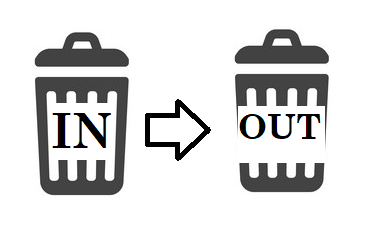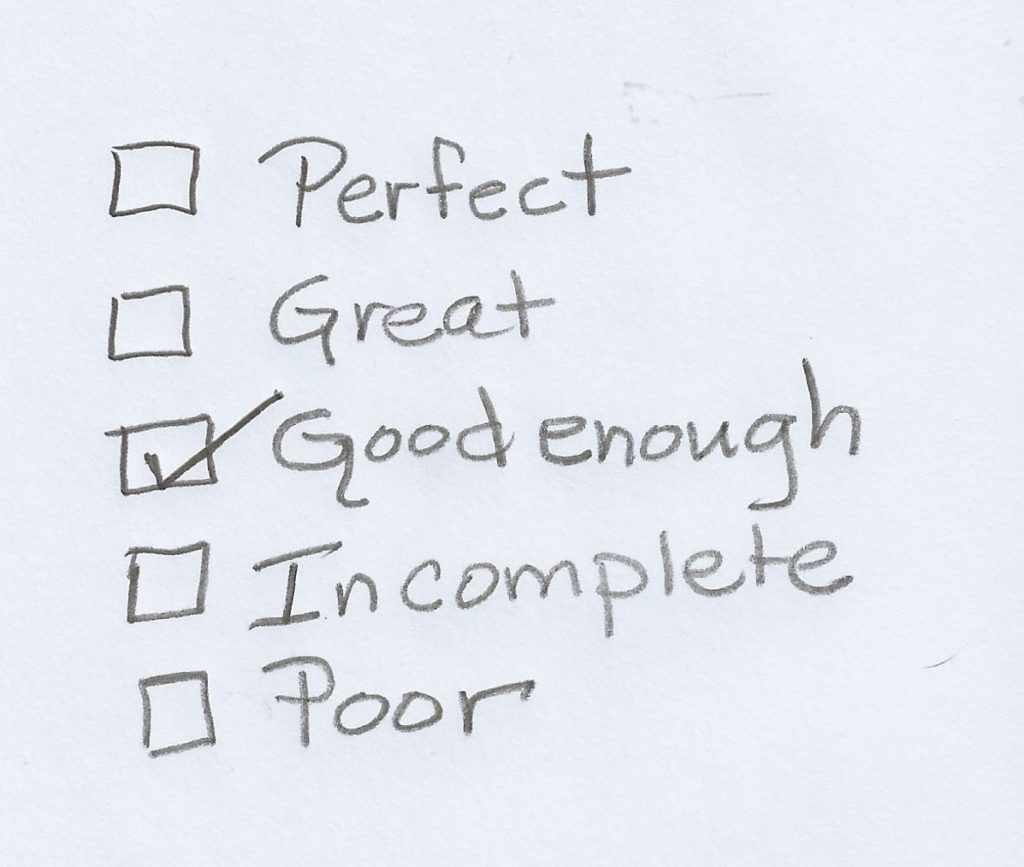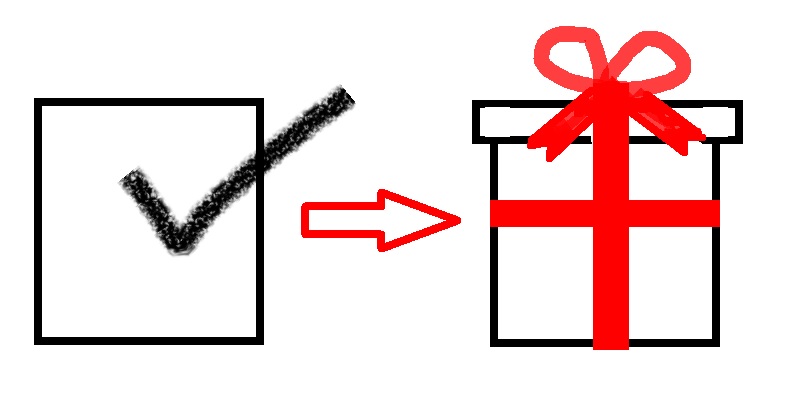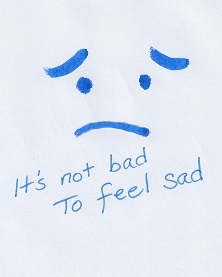Self-care and Ethical Representation
Family representation can take a tremendous toll on the professionals that serve families in crisis. As the findings of the 2017 National Taskforce on Lawyer Wellbeing remind us, self-care is critical to competent and sustainable practice.
For the next month, all the posts on the Ethical Issues in Family Representation Blog will be devoted to tools for self-care. Your comments and suggestions welcome! Let’s build a healthier profession together.
Garbage in, garbage out

One of the important principles of computer programming can be a useful guide for wellness. Many attorneys whose practice exposes them regularly to trauma find that they need to be especially careful to place emotional, social, time and place boundaries around their exposure to this trauma in order to limit their own experience of vicarious trauma. These attorneys often also find they must limit the amount of gratuitous trauma to which they are exposed outside of their practice, avoiding movies, social media, news programs, and even toxic people that hurt, rather than help, mental and emotional wellness. How do you control what is in your inbox?
Asking for help

Even the person who takes the most assiduous care of their physical health with exercise and proper diet and sleep, will sometimes need to see a doctor. Accidents happen. Common illnesses strike. The same is true for mental health. One can follow every practice in the book to care for one’s mental and emotional wellness but life happens. Everyone experiences grief, anxiety, sadness or fear at some point. Sometimes these emotions can be managed with the first aid package of rest, meditation or prayer, other forms of self-care, and time. Sometimes, however, a professional’s care is advisable.
The ABA National Taskforce on Lawyer Wellbeing cites research identifying many factors that discourage asking for a professional’s health with mental health conditions. Of the ten factors identified, six of these have their roots in the stigma that is associated with asking for help with mental health. It is time that we began thinking of mental, emotional, and physical health as a whole and recognize that professional diagnosis, guidance, and treatment are an important part of everyone’s health. If you need help, ask.
Law Schools and Wellness
The ABA National Taskforce on Lawyer Wellbeing noted that law schools have a critical role to play in promoting attorney wellbeing. Recently, the ABA Section of Legal Education and Admission to the Bar has proposed a new standard for law school accreditation that recognizes the importance of supporting law students in finding healthy balance and resources for support while they pursue their education. A new addition to standard 508 would require law schools to provide all students information on law student well-being resources. The proposal is a small but important step in the right direction of helping the newest members of the profession begin their career on the right foot.
In with the good air…
Practicing the long exhale as a method to relax and release stress, you know how a simple breathing technique can make a huge difference in your stress management. Linking deliberate breathing to gratitude practice can double the power of the breath. With each breath in, focus on some goodness in your life that is flowing into and through you. Savor that goodness. Try to draw even more in. With each exhale, imagine all the ways that goodness can and does flow through you and into the world around you. Regular practice at this grateful breathing combines two of the most powerful tools available for a healthy mindset.
Good enough

These are really extraordinary times and so part of self-care is simply giving ourselves some grace. Aiming for perfection in all things is a recipe for exhaustion and burnout. That is not to say that we shouldn’t care about our responsibilities. However, we need to recognize when we are placing unrealistic demands on ourselves. If our to-do list is only growing by the hour but we have no more to give to it, we need to be okay with asking for help or simply letting go. We can be a superhero another time. Especially in a crisis, good enough has to be good enough. Decide what is essential and let the rest go.
Get to, Want to, Must do
Managing our time and energy is a core aspect of self-care. One of the best measures for this management is our to-do list. This important tool for managing our time can also become a key tool for a gratitude mindset. Some of the regular advice for managing a to-do list includes doing the most disagreeable task first or prioritizing by importance and urgency. However, both of these approaches first require our evaluation of the items on our to-do list. In the process of that evaluation, we can reduce the stress of our task list by approaching tasks from an attitude of gratitude.

Rather than thinking of your list as a set of duties or obligations, try re-framing some of these as privileges or opportunities; in other words, move items of your list from “got to do” to “get to do!”
Of course, some tasks are easier to reframe than others, but if we can shift our view of even some of our obligations to privileges, the emotional boost will provide greater joy, energy, and balance to our day.
Daffodils
“I wandered lonely as a cloud,” the classic poem by William Wordsworth, is a perfect object lesson in the power of nature and beauty to restore us. Perhaps you remember the poem:
The poet recounts wandering “lonely as a cloud” when his walk is interrupted by the sight of “a host, of golden daffodils.” The poem ends with the poet’s reflection on that memory.

For oft, when on my couch I lie
In vacant or in pensive mood,
They flash upon that inward eye
Which is the bliss of solitude;
And then my heart with pleasure fills,
And dances with the daffodils.
Poetry, nature, beauty, and imagination — powerful antidotes to loneliness and the “vacant or pensive” moods that visit us.
Just try it once…
We all know the core of self-care: eat right, get some sunshine and exercise every day, get enough sleep and avoid self-medicating with alcohol or drugs. But if you have bad eating habits, or a sedentary lifestyle, erratic sleep, or harmful coping mechanisms, now is probably not the time to try to dramatically change habits.

Instead, just commit to a short time span of change – I’ll drink juice instead of alcohol this week; I’ll walk around the block every morning. Nothing dramatic. You would be surprised how well you can fool yourself with a “just this once” mindset about good habits – it is as alluring as a “just this once” mindset about bad habits.
Daily Thanks
One way to make a gratitude practice stick, is to tie it to some daily routine. One easy connection is eating. Every major religion has a practice of blessing food or saying grace before mealtimes. There is a great deal of wisdom in this practice even if you are not religious. Taking a moment to think about or express gratitude before a meal links a gratitude practice to a daily routine. In addition, such a practice causes us to slow down for mindful eating and enjoyment of our meals, rather than mindless ingestion. Saying thanks separates meal times from work time, reinforcing the habit of taking a break. A pause to be grateful for a meal can connect us to the many people who share that meal with us – from those who are eating with us to the those who grow, process, transport, distribute, and prepare that food. So the next time you reach for a sandwich, take a moment to be grateful!

The Limits of Gratitude

Counting blessings only goes so far, because alongside gratitude there is real loss. Sometimes we just have to grieve. This pandemic has brought us all tremendous loss. Some days we are just going to have to feel sorrow.
Grief (and sorrow, fear, and anxiety) are like quicksand and will pull you in if you struggle against these feelings or try to ignore them. Feeling bad about feeling sad only makes matters worse.
Instead, we need to acknowledge these feelings, let them be, and try to float on top of them until we can move onto firmer ground emotionally. We need to remind ourselves that none of these feelings last forever. Your brain will grab at any lifeline it can and pull you out if you simply give it a chance.

